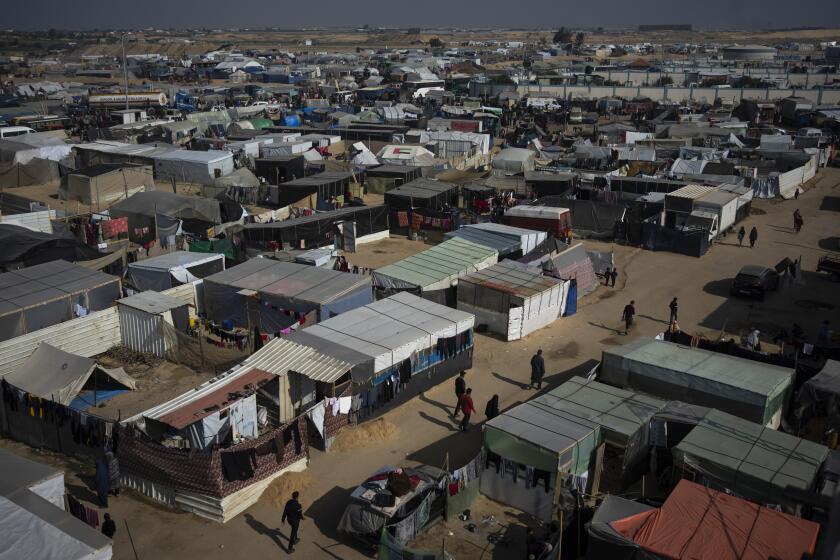A Wary World Gets Some New Neighbors : Soviet Union: Last week’s events are bound to alter balances in Europe and Asia.
The Soviet Union’s great revolution, by altering the relationships between central authorities and the union republics and by changing the boundaries and power of the Soviet Union, will, like revolutions before it, have vast implications.
The French Revolution changed relations among France and its neighbors. France became a dynamic state by force of its revolutionary attraction and then, under Napoleon, it upset the balance of power in Europe and extended French power south and east. The American Revolution led to a new continental power that expanded south and west. The United States was to fight wars with Britain in 1812 and with Mexico in 1845-46 as territorial expansion occurred. The Iranian Revolution of 1979 upset the balance of power in the Persian Gulf, and was followed by Iranian revolutionary claims to religious and ideological authority. The Iraq-Iran War followed. Iraq’s attempt to swallow Kuwait can be seen as a consequence of the Iranian Revolution, too.
Russia had been an expanding power under the czars. But after the consolidation of the Bolshevik regime, which took until the 1920s to accomplish, Soviet power grew in Asia and was more centralized than its predecessor’s. After World War II that power was extended to Eastern European countries for more than 40 years.
The point of these historical stories is to warn that the recent earth-shattering events are bound to alter balances in central Europe and perhaps, later on, in Asia too. At least three new European states will exist: Estonia, Latvia and Lithuania. The Ukraine, almost as large in population as France or Italy, may become an independent state. It is possible that Moldova and Byelorussia will be two more states in Europe. Add from Yugoslavia a likely new Slovenia and a possible Croatia.
Will these states, too, wish to enter the European Community as do the Eastern European ones? Will they all have their own national defense forces? What will their claims be on each other and on the Soviet Union or its successor state? Will the Ukraine, if it secedes, remain one nation? Will part of Moldova revert to Romania? Will there be significant migrations of peoples? How will new trade and investment patterns evolve? At the least, Europe and the United States will have to worry about new boundaries and instabilities and the possible alignments between Western and Eastern European states and those created from the Soviet Union.
In the Caucasus and in Central Asia, even if new sovereign nations do not emerge, the relationships will be altered between Iran, Turkey, China and the Soviet Asian areas as Soviet central power weakens. Muslim-Christian tensions and historic enmities are already exacerbated between Armenians and Azerbaijanis. Tensions can spill over national borders as beleaguered peoples look for allies. Within the Russian Federated Republic, there may be new demands for autonomy made by ethnic communities. And Russia must sort out its relationship with neighboring states, including former union republics that become independent, just as the successor state to the Soviet Union must sort out these relationships.
We cannot easily predict how all these relationships will evolve. Indeed, as the possibilities for greater autonomy appear, some union republics may wish to preserve a federal relationship; others may wish for a looser, confederal status.
What we can predict is that the last of the multinational empires will be a casualty of this Russian Revolution. We can further expect that the evolution of the European community will be affected. Also, the Soviet lands to the south and east will see change in an area already volatile and one where Islam makes its own claims.
It is possible that a new Russia will emerge, one still a great Asian as well as European power, and one that may make demands on its neighbors. It would be tragic if that Russia feels itself encircled by hostile states as was the case so often in Russian history. We must do what we can to make sure that this is not an unforeseen consequence of the new Russian Revolution.
More to Read
Sign up for Essential California
The most important California stories and recommendations in your inbox every morning.
You may occasionally receive promotional content from the Los Angeles Times.






